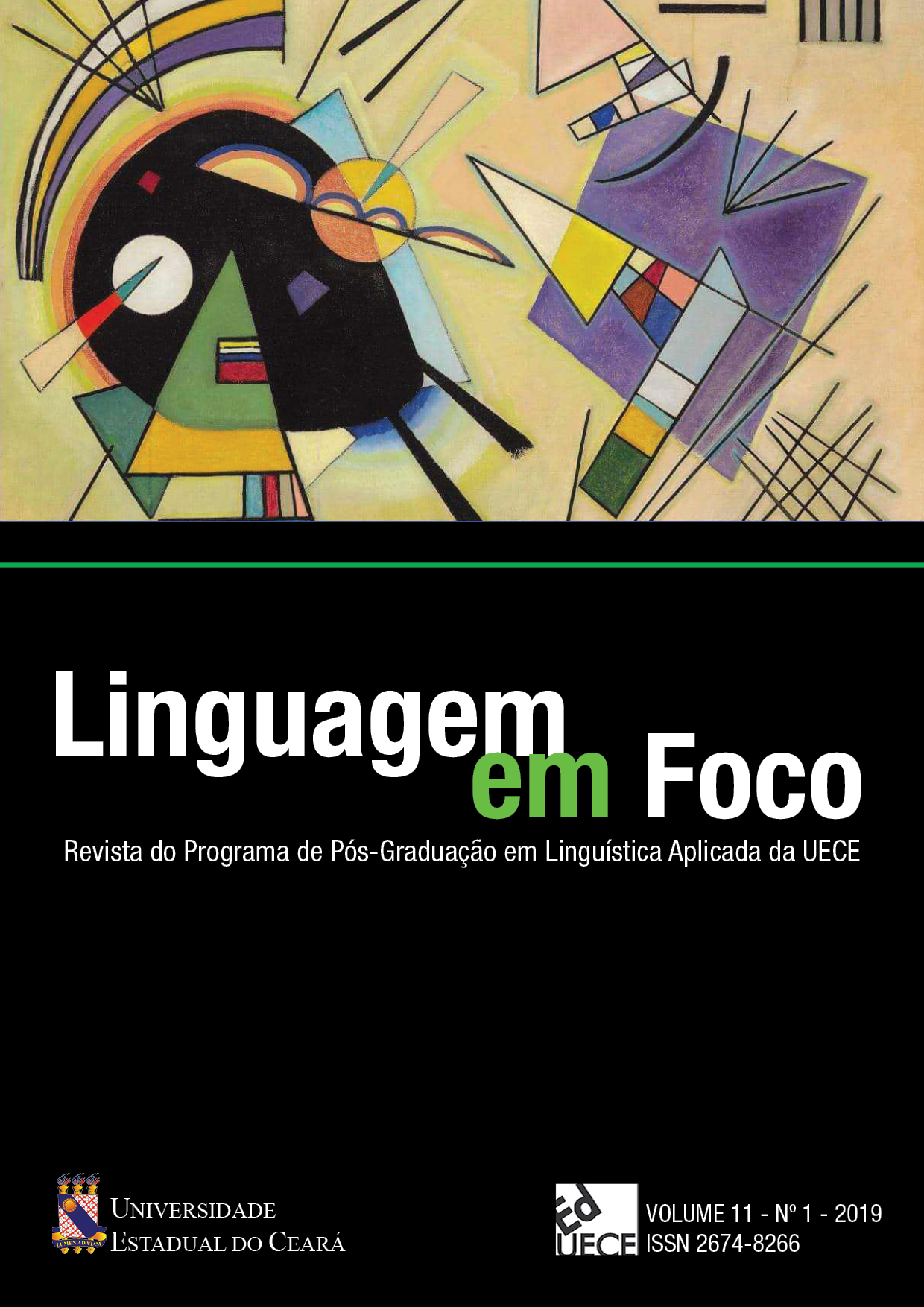Sociolinguistics Contribution to Portuguese Language Teaching
Between Rules, Variation and Teaching
DOI:
https://doi.org/10.46230/2674-8266-11-2944Keywords:
Brazilian Portuguese, sociolinguistics, teachingAbstract
The teaching of Portuguese as a mother language in Brazil has gone through gradual changes, with the universalization of basic education, the contributions of modern linguistics and the insertion of textbooks in public schools. However, these changes have not yet been sufficient to guarantee an approach that recognizes language as a heterogeneous reality, cultivating, in the classroom, the idea of the standard norm as the only possible linguistic reality. This paper aims to discuss, based on the historical formation of Brazilian Portuguese (LUCCHESI, 2009; MATOS E SILVA, 2004), the contributions of sociolinguistics to the teaching of Portuguese (BORTONI-RICARDO, 2005; BAGNO, 2002, FARACO, 2008), and propose activities to deal with the variation that leads to the recognition and awareness of linguistic diversity.
Downloads
References
______. Análise de textos: fundamentos e práticas. São Paulo: Parábola, 2010.
BAGNO, M. A inevitável travessia: da prescrição gramatical à educação linguística. In: BAGNO, M.; STUBBS, M.; GAGNÉ; G. Língua materna: letramento, variação & ensino. São Paulo: 2002.
BRASIL. Ministério da Educação e do Desporto. Secretaria de Educação Básica. Base Nacional Curricular Comum. Brasília, DF: MEC/SEB, 2018.
BRASIL. Ministério da Educação. Secretaria de Educação Fundamental. Parâmetros curriculares nacionais ensino médio: Linguagens, códigos e suas tecnologias. Brasília, DF: MEC/SEF, 1998.
BRASIL. Ministério da Educação e do Desporto. Secretaria de Educação Fundamental. Parâmetros curriculares nacionais terceiro e quarto ciclos do ensino fundamental: Introdução aos parâmetros curriculares nacionais. Brasília, DF: MEC/SEF, 1997.
CASTILHO, A. T.; ELIAS, V. M. Pequena gramática do português brasileiro. São Paulo: Contexto, 2012, p. 155.
COELHO, I. L. et al. Para conhecer sociolinguística. São Paulo: Contexto, 2018.
FARACO, C. A. Norma culta brasileira: desatando alguns nós. São Paulo: Parábola, 2008.
COSTA, G. B. Norma linguística e realidade sócio-histórica do português popular do Brasil. Letra Magna, n. 12, 2010.
FARACO, C. A.; TEZZA, C. Prática de texto para estudantes universitários. Petrópolis (RJ): Editora Vozes, 2011, p. 139.
GIVÓN, T. Functionalism and Grammar. Amsterdam/Philadelphia: John Benjamins Publishing Co, 1995.
LABOV, W. Sociolinguistic patterns. Philadelphia: University of Pennsylvania Press, 1972.
LUCCHESI, D. História do contato entre línguas. In: LUCCHESI, D.; BAXTER, A.; RIBEIRO, I. (org). O português afro-brasileiro. Salvador: EDUFBA, 2009.
LUCCHESI, D. Língua e sociedades partidas: a polarização sociolinguística do Brasil. São Paulo: Contexto, 2015.
NARO, A. J.; SCHERRE, M. M. P. Origens do português brasileiro. São Paulo: Parábola, 2007.
______. Duas dimensões do paralelismo formal na concordância de número no português popular do Brasil. Delta, São Paulo, v. 9, N. 1, p. 1-14, 1993.
NEVES, M. H. de M. Que gramática estudar na escola? Norma e uso na língua portuguesa. São Paulo: Contexto, 2008.
RUBIO, C. F. Padrões de concordância verbal e de alternância pronominal no português brasileiro e no português europeu. São Paulo: Cultura Acadêmica, 2012.
_____. A concordância verbal na região noroeste do estado de São Paulo. 2008 Dissertação (Mestrado em Estudos Linguísticos) – Instituto de Biociências, Letras e Ciências Exatas, Universidade Estadual Paulista.
PERINI, M. A. Gramática descritiva do português. São Paulo: Ática, 1995.
SCHERRE, M. M. P. Doa-se lindos filhotes de poodle: variação linguística, midia e preconceito. São Paulo: Parábola, 2005.
TRAVAGLIA, L. C. Gramática e interação: uma proposta para o ensino de gramática. 14 ed. São Paulo: Cortez, 2009.
VIEIRA, S. R. Concordância verbal. In: VIEIRA, S. R.; BRANDÃO, S. F. (Orgs.). Ensino de gramática: descrição e uso. São Paulo: Contexto, 2014, p. 85-102.
WEINREICH, U.; LABOV, W. e HERZOG, M. Fundamentos empíricos para uma teoria da mudança linguística. São Paulo: Parábola, 2006 [1968].
Downloads
Published
How to Cite
Issue
Section
License
Copyright (c) 2020 Fábio Fernandes Torres, Izabel Larissa Lucena Silva

This work is licensed under a Creative Commons Attribution 4.0 International License.
Authors who publish in Linguagem em Foco Scientific Journal agree to the following terms:
- Authors retain the copyright and grant the journal the right of first publication. The articles are simultaneously licensed under the Creative Commons Attribution License which allows sharing the work with an acknowledgement of its authorship and initial publication in this journal.
- The concepts issued in signed articles are the absolute and exclusive responsibility of their authors. Therefore, we request a Statement of Copyright, which must be submitted with the manuscript as a Supplementary Document.
- Authors are authorized to make the version of the text published in Linguagem em Foco Scientific Journal available in institutional repositories or other academic work distribution platforms (ex. ResearchGate, Academia.edu).





























